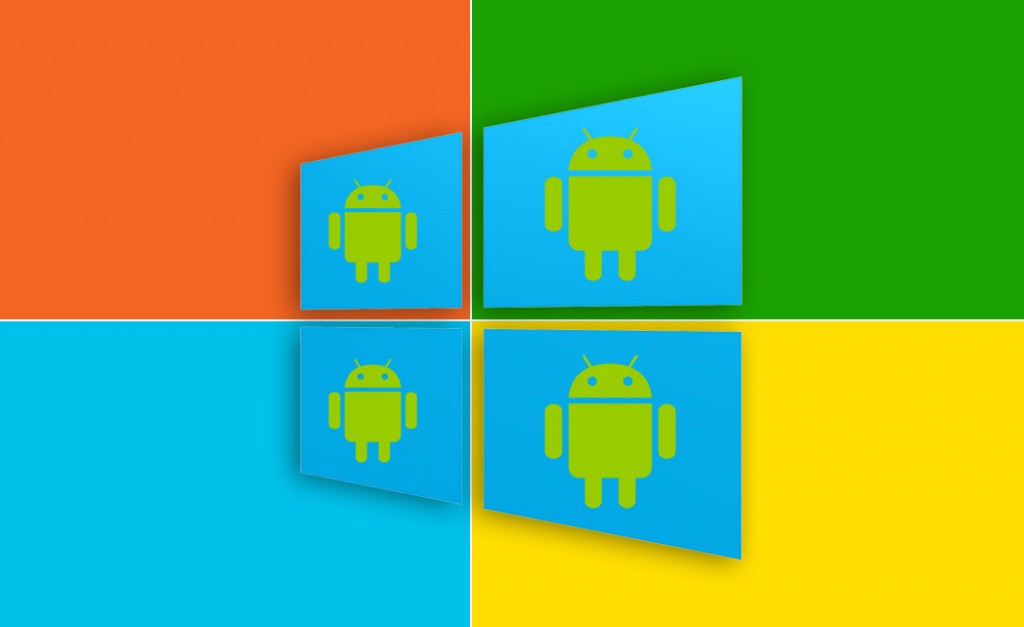Microsoft is in discussions to add support for Android apps in Windows and Windows Phone, according to a report from TheVerge. Sources have told TheVerge that Microsoft is serious about bringing Android apps to both its platforms, but the discussions are still ongoing and nothing is concrete yet. The ongoing talks currently point to adding Android apps in the Windows Phone and Windows Stores, according to the report, which will inadvertently boost the app numbers, something that Microsoft really needs. Windows Phone and Windows have been second thoughts for any new developer looking at developing an app, and at most of the times, there are not enough resources to dedicate for a third platform, so will Android apps support on Windows and Windows Phone make sense?
In short yes, it will be a win for consumers as well as Android developers, who would get to publish the same app on different stores. The development costs get lower, visibility increases and naturally, Windows devices get more desirable with more apps. But at the same time, this will have huge ramifications for the Windows Phone and Windows developer community, many of which are devoted users of the platforms. Sure, there aren’t many when compared to the other platforms, but they will certainly not be happy. Also, if one could release Android apps on the Windows Stores, developing in a Microsoft environment becomes less likely, which will signal the slow killing of the whole ecosystem of developers that develop for Microsoft’s platforms. Certainly, Microsoft will be thinking hard about this decision and its outcomes, but with a “devices and services” motto and a cloud-based future, Microsoft would want more people to build apps based on its services, which can happen with the Android apps strategy.
Surely, this is nothing new. BlackBerry tried it with BB10 and even saw some games release on its platform before Windows Phone, but with a dwindling consumer base, the outcome was obviously a failure. Microsoft on the other hand has a growing user base thanks to Nokia, and it will hope to keep it growing at a steady pace, so the uptake of Android apps through Windows Stores might be better than BlackBerry 10. Lets say a game developer wants to publish his game, he develops for iOS and Android, but doesn’t consider Windows Phone because of its low user base, the said developer will be able to push his Android app to the store, without thinking about a recode. That would certainly be a win for the consumer. Case in point, the extinct Flappy Bird, which will never see the light of the day on Windows Phone.
Our theory is that games will be totally fine, but general apps and services will have a jarring UX on Windows Phone. Metro has enabled some really good looking apps on Windows Phone, and that big advantage will be sacrificed if Android apps make their way onto the platform. Microsoft is said to be looking at a solutions partner for this implementation, a third party maybe. Which brings us to the Windows side, where we have already seen Android apps work through third party solutions like BlueStacks. It’s not an elegant solution, but if it’s possible on Windows through emulation, it should be possible on Windows Phone too, albeit with some performance hit. But again, Bluestacks is based on Dalvik, a Java VM that Google is pushing developers to change from, to its own implementation called ART. So, if Microsoft is planning to have a x86 version of Dalvik, just like Bluestacks, the effort might just go to waste in a couple of years.
Overall, for consumers like us, the Android apps support is a great idea. For mobile developers, it will be lesser investment in resources, instantly more audience to address, and hence naturally, a great idea for them too. But for Microsoft, a company that always like to play the long term game, support of Android apps will possibly kill the idea of a whole developer ecosystem it wants to have on its side. And with that, the platform development will also be slowly killed off. With Google hinting at Chrome apps and Microsoft hinting at Android apps for their respective devices and platforms, the industry has just gone from interesting to insane. We will be sure to let you know if anything else happens on this front, keep checking!


